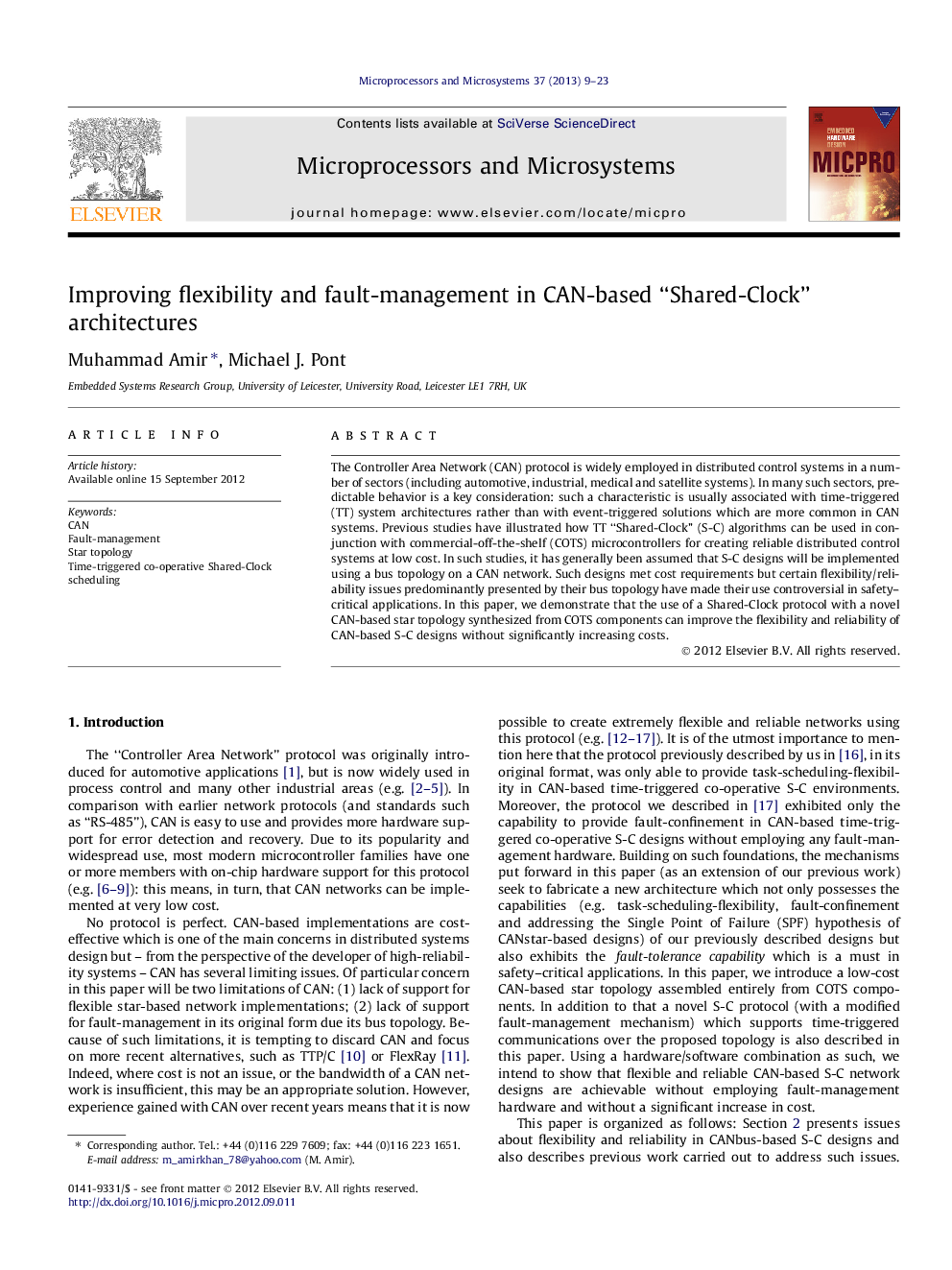| Article ID | Journal | Published Year | Pages | File Type |
|---|---|---|---|---|
| 460973 | Microprocessors and Microsystems | 2013 | 15 Pages |
The Controller Area Network (CAN) protocol is widely employed in distributed control systems in a number of sectors (including automotive, industrial, medical and satellite systems). In many such sectors, predictable behavior is a key consideration: such a characteristic is usually associated with time-triggered (TT) system architectures rather than with event-triggered solutions which are more common in CAN systems. Previous studies have illustrated how TT “Shared-Clock” (S-C) algorithms can be used in conjunction with commercial-off-the-shelf (COTS) microcontrollers for creating reliable distributed control systems at low cost. In such studies, it has generally been assumed that S-C designs will be implemented using a bus topology on a CAN network. Such designs met cost requirements but certain flexibility/reliability issues predominantly presented by their bus topology have made their use controversial in safety–critical applications. In this paper, we demonstrate that the use of a Shared-Clock protocol with a novel CAN-based star topology synthesized from COTS components can improve the flexibility and reliability of CAN-based S-C designs without significantly increasing costs.
► We identify scheduling flexibility issues in time-triggered Shared-Clock designs. ► We also identify reliability issues in such designs due to their CANbus topology. ► We propose a novel CANstar topology and a novel Shared-Clock algorithm. ► Improvements in flexibility and reliability are shown through case studies.
